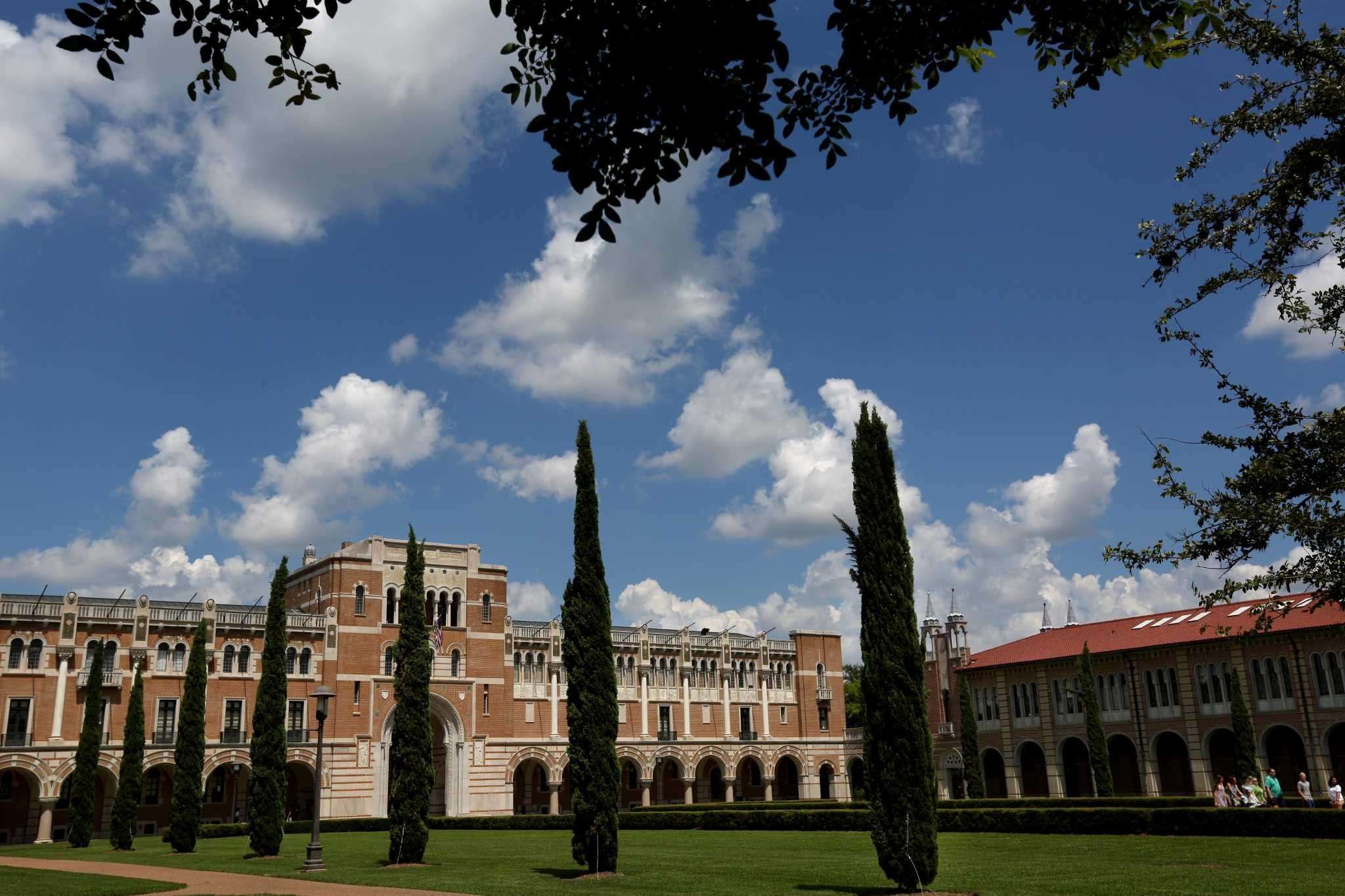Rice University announces free tuition for middle income undergraduate students
Rice University officials announced Tuesday they will provide full tuition scholarships to undergraduate domestic students from low- and middle-income backgrounds starting in the fall of 2019, the latest effort by a major university to respond to rising concerns about soaring higher-education costs and burdensome student debt.
The new financial plan, The Rice Investment, will allow full-tuition scholarships and grants to be offered to undergraduate students whose family incomes fall between $65,000 and $130,000 a year and who qualify for need-based financial aid, according to a news release issued Tuesday by the university.
Students who come from families with an income of $130,000 to $200,000 can also receive scholarships that cover at least half of their tuition. A student whose family makes below $65,000 will be able to receive grant aid that covers their full tuition and mandatory fees, room and board. The financial aid is open to both incoming and continuing students at Rice, the private research university that sits on 300 acres in Houston.
BIG BILLS: Texas colleges that leave students with the most debt
“It’s really important to us that all families feel that if their child is admitted to Rice that they can make this work, that they can afford it,” said David Leebron, the university president, in a phone interview Monday. “It’s very clear that over the past decades, that the difference between what a middle-income family feels they can reasonably afford and what a college education costs has grown larger.”
The push to make college more affordable for all students coming to Rice is a part of a seven-point strategic plan announced earlier this year. Given the strategic plan and the national discussion about student debt and the affordability of higher education, Leebron said the university had been thinking of other options to help students.
There is not a cap on the number of students who can apply for the full-tuition scholarships and grants, but they need to meet specified income brackets and have typical assets, according to university officials. The money for the financial plan will initially come from a special distribution from the university’s endowment, but university officials said that alumni have expressed interest in keeping tuition affordable for incoming students.
LOCATION: Maps show the geography of student debt in the Houston area
A $150 million fundraising program is also in place to help fund the new financial aid program.
Mark Kantrowitz, a financial aid expert and publisher and vice president of research for Savingforcollege.com LLC, said Rice University is a part of a growing number of universities that are working to make college more affordable.
“The prospect of borrowing to pay for your college education if you’re a low-income student can have a chilling effect on whether you even apply,” Kantrowitz said. “Imagine being told that you’re going to have to borrow more for your entire education than your parents earn in a year. There have been lots of efforts to try to encourage more college-capable, low-income students to pursue a college education.”
Last year, the University of Michigan announced a similar plan, to offer free tuition to in-state students with a family income up to $65,000 a year. The median income in Michigan is nearly $64,000 a year.
“Students who are scared away by the cost of college are more likely going to consider going to college if they hear free tuition than if they hear no loans,” Kantrowitz said.
Leya Mohsin, a senior at Rice University, applauded the financial plan. The policy studies and economics major said it’s not rare for student loans or the cost of college to come up in conversation with her friends.
BOLD STEP: Gen Z says it plans to buy homes soon, despite college debt
“For a lot of my friends who are seniors, we also now have younger siblings who are studying to go to college,” said Mohsin, whose brother attends Emory University in Atlanta. “Something that none of us thought about is the burden of having to pay for not just us, but parents who have to deal with multiple children who are in expensive universities at the same time.”
Mohsin did not have to worry about taking out student loans because her parents were able to afford her Rice University tuition, currently $46,600 annually, but she knows that not all her classmates are as lucky. As part of the assistance plan, Rice will also allow students whose families have incomes up to $200,000 not to be required to take out student loans as part of their financial aid packages.
“When you’re 18 and starting college, you don’t realize the impact that student loans are going to have on your life as an adult after you graduate,” said Mohsin. “Being one of (the few in my group of friends) who doesn’t have to worry about that extra layer of having to pay off some of my debt every month is really a benefit to me, but I know it’s not something that a lot of students experience at the moment.”

Andrew5329 on September 18th, 2018 at 19:31 UTC »
Heh, I had "free in-state tuition" at any state school through a scholarship because I scored very highly on the MCAS (Massachusetts standardized testing).
Actual value: $3,000.
University/Academic Fees: $14,000 not included.
Mandatory on-campus Room and Board for Freshman/Sophomores $13,000 not included.
Mv71 on September 18th, 2018 at 18:34 UTC »
Wonderful for those students. I can't help but wonder how hard the cut-off is... Could you imagine being the family that's just a few bucks above the margin for "middle income"? I would hope that their system wouldn't send you from "Free tuition" to "Full tuition" without some sort of a gradient
fyodor_mikhailovich on September 18th, 2018 at 18:04 UTC »
Originally, Rice was free to all students who got in.